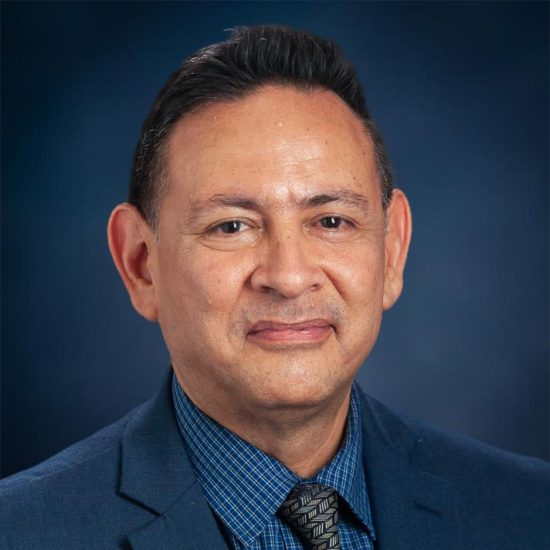E. Mark Moreno, Ph.D. Associate Professor
- Faculty

A 16-year-old history buff scans the shelves of his classroom. He notices something new, an obscure essay on Mexican revolutionary, Emiliano Zapata. That book would change Mark Moreno’s life. He took time after high school to pursue journalism and watch history unfold for himself. It was after leaving journalism behind that Moreno rediscovered his passion for Mexican history in grad school and never looked back. Today, he shares his passion with his students and continues to challenge himself with every new project.
A Conversation with Dr. Moreno
What has been your favorite course to teach?
“There are many: A sophomore-level class on conflict and revolution in Mexico, my class on colonial Latin America, which spans from the Indigenous civilizations to the era of independence wars, and a newer class on Afro-Latin America, which I look forward to teaching again. I also love teaching modern American history, in which my focus is upon popular culture from the Reconstruction era through the 1960s.”
Tell us about a project you are working on or have completed.
“My latest publications involve national identity in nineteenth-century Mexico, particularly on constructions of race in popular reading. I am also interested in Mexican war propaganda of that period, which in many cases involved a glorification of guerrilla warfare and depictions of resistance fighters on horseback and their communities, who were often depicted as men and women of color. The intellectuals writing these narratives thereby created who they thought of as symbolic “true Mexicans” to generate patriotism.”
Tell us a little about yourself.
“I was a troubled kid in a fairly rough neighborhood of San Jose, California. Most of my friends dropped out of high school, and I eventually obtained a GED and went into community college to study journalism. That journey eventually led me here as an associate professor of history. Perhaps my early background, in which issues of class and ethnic identity figured, led me to study race and national identity in Mexico. That subject involves many factors including literacy, warfare, and popular reading. This is an on-going, multi-faceted series of projects that will likely take several years to reach full completion.”
Educational Background
- Ph.D., History, Washington State University, 2011
- M.A., History, Washington State University, 2005
- B.A., Journalism, San Jose State University, 1994
Academic Positions
- Associate Professor of History, Texas A&M University-Commerce, 2019-present
- Assistant Professor of History, TAMUC, 2013-2019
- Instructor of History and Adjunct Faculty, Columbia Basin College, 2008-2013
- Instructor/Teaching Assistant, Washington State University Tri-Cities, 2008-2009
Awards and Honors
- Global Fellow, A&M-Commerce, 2021
Research Interests
- Post-Independence and Modern Mexico
- Print Culture and Popular Reading
- Schooling and Literacy
- Race, Gender, and Citizenship
Professional Organizations
- Latin American Studies Association (LASA), Standing Committee Member, Mexico Section—Chair of the Prize Committee, Best Social Sciences Article
Selected Publications
Featured Courses
HIST 1302 U.S. History from 1865
HIST 265 Mexico, Race, Gender, and Nation


